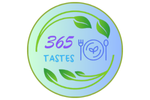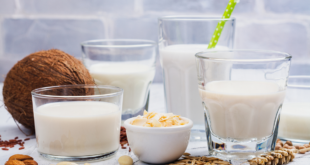Protein is an essential macronutrient that plays a crucial role in building muscles, repairing tissues, and producing enzymes and hormones. A well-balanced diet rich in protein helps maintain overall health and supports weight management. In this article, we will explore the best protein-rich foods that can be easily incorporated into your daily diet.

1. Lean Meat and Poultry
Lean meats such as chicken, turkey, and lean cuts of beef are excellent sources of high-quality protein. They provide essential amino acids necessary for muscle growth and repair.
- Chicken Breast: One of the best protein sources, containing about 31g of protein per 100g.
- Turkey: A lean meat with approximately 29g of protein per 100g.
- Lean Beef: Contains about 26g of protein per 100g and is rich in iron and B vitamins.

2. Fish and Seafood
Fish and seafood are excellent sources of protein, omega-3 fatty acids, and essential vitamins.
- Salmon: Provides about 25g of protein per 100g and is high in healthy fats.
- Tuna: Contains around 30g of protein per 100g, making it a popular choice for fitness enthusiasts.
- Shrimp: A low-calorie, high-protein seafood option with about 20g of protein per 100g.

3. Eggs
Eggs are among the most nutrient-dense foods, packed with high-quality protein, healthy fats, and essential vitamins.
- One large egg contains about 6g of protein.
- Eggs are also rich in choline, which supports brain health.

4. Dairy Products
Dairy products like milk, cheese, and yogurt are excellent sources of protein and calcium.
- Greek Yogurt: Provides about 10g of protein per 100g and supports gut health.
- Cottage Cheese: Contains approximately 11g of protein per 100g.
- Milk: A great source of protein and calcium, with about 3.4g of protein per 100ml.

5. Plant-Based Protein Sources
For those following a vegetarian or vegan diet, there are plenty of plant-based protein sources available.
- Lentils: Contain about 9g of protein per 100g and are rich in fiber.
- Chickpeas: A versatile protein source with approximately 8g per 100g.
- Quinoa: A complete protein containing all nine essential amino acids, with about 4g per 100g.

6. Nuts and Seeds
Nuts and seeds are excellent sources of protein, healthy fats, and essential minerals.
- Almonds: Provide about 21g of protein per 100g and are rich in vitamin E.
- Chia Seeds: Contain about 17g of protein per 100g and are packed with omega-3 fatty acids.
- Pumpkin Seeds: High in protein, with approximately 30g per 100g.

7. Legumes and Beans
Legumes and beans are affordable and nutritious protein sources that support heart health.
- Black Beans: Contain about 8g of protein per 100g and are rich in antioxidants.
- Kidney Beans: Provide approximately 9g of protein per 100g and support digestion.
- Edamame: Young soybeans that offer around 11g of protein per 100g.

8. Protein Supplements
For those who struggle to meet their protein needs through whole foods, protein supplements like whey and plant-based protein powders can be beneficial.
- Whey Protein: A complete protein source with around 20-25g of protein per serving.
- Plant-Based Protein Powder: A good alternative for vegans, offering about 15-20g of protein per serving.

Final Thoughts
Incorporating protein-rich foods into your diet is essential for overall health, muscle maintenance, and energy levels. Whether you prefer animal-based or plant-based proteins, there are plenty of delicious and nutritious options to choose from.
For more recipes and health tips, visit 365 Tastes.
 Tastes | Live healthy every day
Tastes | Live healthy every day

